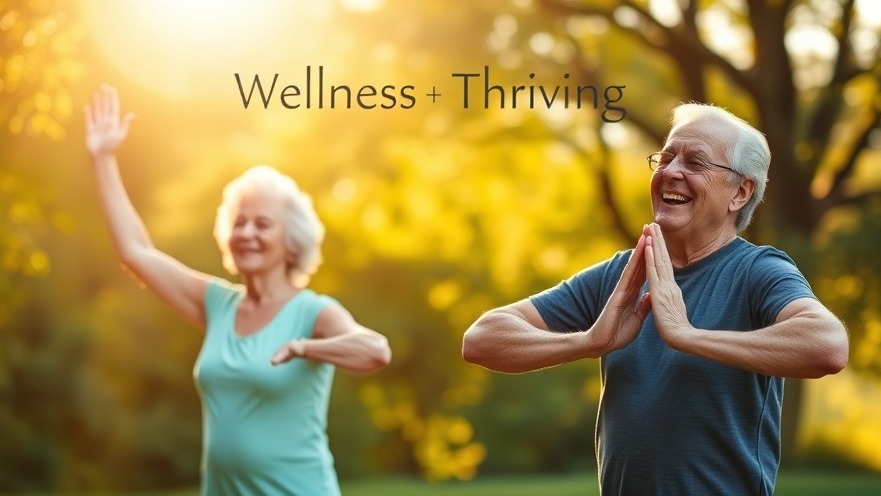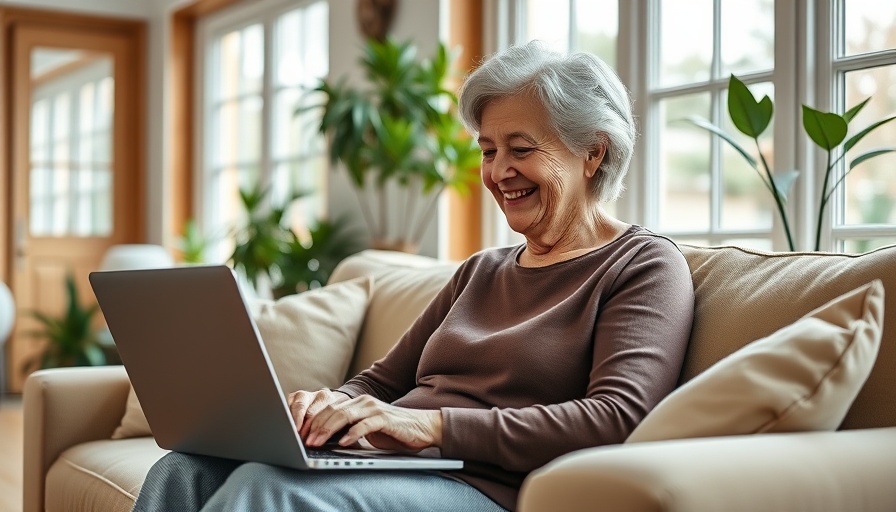
Discover Essential Self-Care Tools for a Vibrant Life Beyond 50
In today’s fast-paced world, taking care of our health should be a priority. This is especially true as we age; moving beyond reactive health measures to a proactive approach can make an enormous difference. As discussed in Ed Deo’s insightful video, 5 Essential Self-Care Tools to Thrive in 2025: Boost Your Wellness!, there's a fundamental shift needed in how we view our self-care—essentially adopting a toolkit for a healthier lifestyle.
In the enlightening video 5 Essential Self-Care Tools to Thrive in 2025: Boost Your Wellness!, Ed Deo emphasizes the importance of proactive health measures, inspiring us to analyze these concepts further.
1. Unlock Mobility and Recovery with Foam Rollers
Foam rollers are a staple for individuals seeking to enhance their flexibility and mobility as they age. These versatile tools come in various forms, with standard hard foam options being popular for their durability. However, softer versions may be more suitable for beginners. Foam rollers help alleviate muscle tension, improve circulation, and promote better posture, particularly important as we spend more time hunched over screens.
Ed emphasizes the importance of thoracic spine mobility, suggesting lying back on the roller with arms extended can open up the chest and relieve the discomfort that comes with stiffness. Incorporating this simple yet effective practice into your routine could yield lasting benefits as you strive for an active lifestyle.
2. Target Pain with Trigger Point Balls
Living with unspecified aches can sometimes result from muscular knots, and trigger point balls offer an excellent solution. These come in various sizes, allowing for targeted relief based on muscle groups. For instance, larger balls can address broader areas, while smaller ones can focus on pesky spots near the shoulder blades.
An innovative tip from Ed is to use a tennis ball in a pair of nylons, which serves as a functional DIY trigger point tool. The results can be liberating, transforming a few minutes against a wall into significant pain relief. Every moment spent reducing discomfort contributes to the larger goal of enjoying an active lifestyle well into our golden years.
3. Improve Strength and Flexibility with a Doorway Pull-Up Bar
A pull-up bar might seem like a tool for gym enthusiasts, but its benefits extend far beyond traditional pull-ups. It serves as a gateway to strengthening grip and enhancing shoulder mobility, essential for daily tasks. Engaging with the bar through various positions can elevate your fitness game and provide necessary strength to maintain an active lifestyle.
Even individuals who may not manage full pull-ups can participate. Hanging with their feet on the ground is an excellent start, allowing users to build strength gradually. It’s also an opportunity for focusing on core muscles while working on that crucial shoulder flexibility.
4. Incorporate Resistance Bands for Total Body Fitness
Resistance bands are transformative when it comes to strength training, especially for seniors. They come in a range of tensions, making them ideal for a personalized fitness journey. Whether at home or traveling, bands allow you to perform a series of exercises targeting different muscle groups without requiring a complex gym setup.
Ed’s recommendation to use these bands as part of a strength training program paves the way for long-term health. The beauty of resistance bands lies in their versatility and accessibility, leveling the playing field for all individuals striving to improve their physical fitness.
5. Stress Relief with Massage Guns
There’s something quite soothing about a good massage, and massage guns offer a delightful way to pamper sore muscles. These gadgets can penetrate deeper layers of muscle tissue, providing relief from tension built up over the day. As mentioned by Ed, using a massage gun while watching TV can blend relaxation with self-care seamlessly.
For seniors, using a massage gun can reduce stress and improve recovery times after physical activities. It serves not just as a remedy but as a preventive measure against future discomfort.
Put Yourself First: Actionable Steps for Living Well
Ultimately, adopting these tools into one’s daily routine is not just about physical health; it’s about nurturing oneself. Whether it’s through foam rolling, trigger point therapy, pull-up training, resistance exercises, or soothing massages, each practice paves the way for improved well-being. Ed’s video highlights that self-care isn’t merely a luxury; it’s a vital necessity for living full, vibrant lives, especially for those over fifty.
If you haven’t already embraced these self-care tools, now is the perfect time to start. Begin by selecting one or two tools from this list that resonate most with your needs. Use them consistently to enhance your vitality and enjoyment of life.
Stay Proactive, Stay Engaged
As you embark on this self-care journey, remember to connect with habit-forming practices that blend seamlessly into your lifestyle. Make 2025 a year focused on wellness, ensuring that you invest time in yourself just as you would for any other priority.
 Add Row
Add Row  Add
Add 




Write A Comment